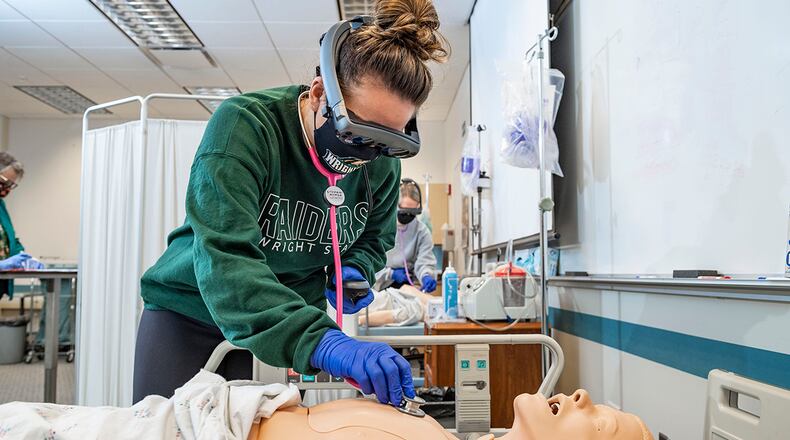In the future, students will also be able to begin the program in the spring and summer semesters, Wright State said. Current students are not eligible for the three-year program, and the Lake Campus will not expand from its current four-year nursing degree, the university said.
Hospitals are begging for nurses after the pandemic worsened the nursing shortage. Nurse practitioners, nurse anesthetists and nurse midwives are expected to grow as a field by 45% through 2030, according to the U.S. Bureau of Labor Statistics.
“It’s a problem everywhere,” said Deborah Ulrich, professor of nursing and assistant co-chair of Wright State’s School of Nursing, Kinesiology and Human Sciences. “Nursing is a difficult job and they burn out quickly. COVID has placed an additional stress on the profession.”
The accelerated degree comes at a time when multiple other colleges, including Sinclair Community College, Edison State Community College and Kettering College, are accelerating or adding nursing programs to their offerings.
Ann Stalter, professor and chair of nursing, said helping the region’s health care facilities fill job openings with Wright State nursing graduates will assist in providing patients with quality care.
“That should help our health care partners increase quality and safety within their organizations,” she said. “The state has a shortage of nurses at the bedside — that’s a real problem for the public’s health.”
One of the problems with expanding a nursing program is finding faculty to teach it. Nurses generally get paid more in a clinical setting than in academia, so finding qualified people to teach can be challenging.
According to the American Association of Colleges of Nursing. U.S. nursing schools turned away 80,407 qualified applicants from baccalaureate and graduate nursing programs in 2019 due to an insufficient number of faculty, clinical sites, classroom space and clinical preceptors, as well as budget constraints.
Wright State said the nursing school isn’t hiring more faculty to teach over the summer specifically because of this additional degree program, but plans on hiring more faculty in the future.
Wright State said the School of Nursing has established relationships with the region’s major health care organizations — Premier Health Partners, Kettering Health, Mercy Health Network and Dayton Children’s Hospital — and more than 200 health care agencies.
About the Author

